
In our last article, we shared information about intrusion detection using a PIR sensor and how to store captured images on Firebase, an open source Google Cloud tool. This time, we have included video storage using the Telegram app. Our proposed setup is illustrated in Fig. 1.
Here, a PIR sensor connected to a Raspberry Pi checks for intruders in a room using a motion sensor. If it detects human movement, it captures frames from the camera and sends them to your Telegram bot. Fig. 1 depicts the author's prototype of the observation zone where slight hand movements activate the Pi camera, recording a 5-second video. The bill of materials for this bot is listed in Table 1.
EFY note. Additionally, you will need a 16GB SD card and a 5V 2A DC power source if you already have a Raspberry Pi.
Connection
Fig. 2 shows the circuit diagram of intruder detection using a Pi camera and video storage with the Telegram bot. It is built around Raspberry Pi 4B+ (MOD1), a PIR motion sensor (S1), Pi Camera, and a few jumper wires.
Installation and setup
We have used Python for programming. Before coding, you need to configure Raspbian OS on the Raspberry Pi and install the necessary Pi camera library files.
To use a Raspberry Pi camera (connected via a ribbon cable), first enable the camera interface in the Raspberry Pi configuration settings.
You can do this through the terminal using the following commands:
$ sudo apt-get install python-picamera
$ sudo apt-get installpython3-picamera
You can also enable the camera interface using the Raspberry Pi configuration menu: Main Menu →Select Preferences Raspberry Pi Configuration. Then, go to the Interfaces tab and enable the camera. Fig. 3 illustrates the Raspberry Pi configuration menu, and Fig. 4 shows the camera enabling configuration.
Denne historien er fra December 2023-utgaven av Electronics For You.
Start din 7-dagers gratis prøveperiode på Magzter GOLD for å få tilgang til tusenvis av utvalgte premiumhistorier og 9000+ magasiner og aviser.
Allerede abonnent ? Logg på
Denne historien er fra December 2023-utgaven av Electronics For You.
Start din 7-dagers gratis prøveperiode på Magzter GOLD for å få tilgang til tusenvis av utvalgte premiumhistorier og 9000+ magasiner og aviser.
Allerede abonnent? Logg på
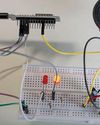
ESP32-Powered AUDIO-VISUAL SIREN
This sound alternator is designed to simulate the effects of a police siren, combining sound and light to create a dynamic audio-visual experience.
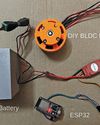
BLDC MOTOR With Web-Based Speed Control Using ESP32
Integrating wireless control into brushless direct current (BLDC) motor systems opens up exciting possibilities for applications such as remote-controlled cars, robots, and other innovative systems.
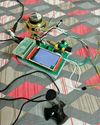
Pi Zero Portable BILINGUAL TRANSLATOR
This system is designed as a bilingual translator, leveraging the gTTS library to support multiple Indian languages, including English (en), Bengali (bn), Gujarati (gu), Hindi (hi), Kannada (kn), Malayalam (ml), Marathi (mr), Tamil (ta), Telugu (te), and Urdu (ur).
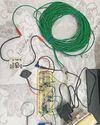
Op-Amp-Based VEHICLE THEFT DETECTOR
A simple, low-cost device can effectively alert homeowners or occupants if a parked vehicle is moved or tampered with.
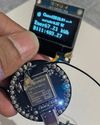
loT SMART METER With Dashboard
Energy meters in homes track electricity usage, enabling accurate billing by governments and providers.

Choose The Right Cloud Platform For Implementing loT PROTOCOLS
Working with loT protocols like MQTT, AMQP, and CoAP on cloud platforms is essential for developing scalable and efficient lol applications. The choice of the programming platform will depend on factors like project requirements, existing skills, and target devices. Leveraging the appropriate libraries and cloud services can enable seamless integration of lol devices with cloud-based applications.

Why TMR SENSORS Lead Next-Generation Design
TMR sensors are gaining traction in industries needing precision and power efficiency. What makes them the go-to choice for modern designs?

DESIGNING PCBs For EMI Management
Electromagnetic interference can derail your PCB’s performance. EMI management is not just a technical necessity but a hallmark of exceptional PCB design.

CUTTING COSTS, NOT CORNERS: Building Large Scale Applications With Open Source Software
Here are some strategies and best practices for leveraging open source to create enterprise-grade web and mobile applications without sacrificing quality or functionality.

"We Are One Of India's Very Few State Bodies To Manage The Entire Lifecycle Of The Electronics EcosystemFrom Approvals To Subsidies."
What is Gujarat State Electronics Mission GSEM), and how is it attracting major investments in electronics manufacturing, particularly semiconductor manufacturing, to Gujarat? To delve deeper, Electronics For You’s Nijhum Rudra spoke with Manish Gurwani, the head of GSEM. Here is what he revealed...